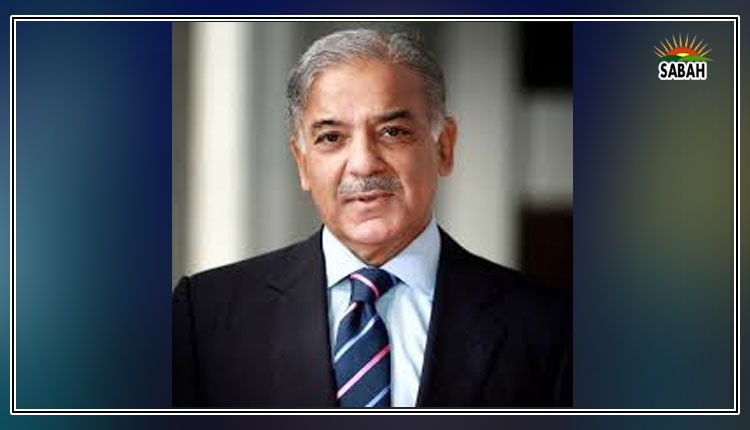Maverick politicians…Arifa Noor
I HAVE a confession to make: there is not much left to say this week. The political crisis, the economic meltdown and the constitutional impasse all seem to have been done to death.
There is a brain freeze in my upper storey, and sadly, it has nothing to do with ice cream. I was tempted to write about the food shows on Netflix, which are of such great comfort in these crazy times; none of them are about a contest but just food, like Salt, Fat, Acid, Heat by Samin Nosrat or The Chefs Table. Restful stuff! I was tempted to pontificate a bit about food shows and their universal appeal an issue the likes of The New Yorker have covered in detail. But would it hide the brain freeze?
But then, desperation is the mother of necessity, and a book came to mind. Not a recent publication (it was published in 2017), but its still worth a read because the issues it dealt with are still relevant. For, despite its focus, it does provide some food for thought about the mess in our confused land.
Called The Rise of the Outsider; How mainstream politics lost its way, by Steve Richards, it seeks to explain the emergence, or rather the popularity, of the mavericks in politics; from Donald Trump, to Boris Johnson, to others.
The authors argument doesnt just go back to the 2008 crisis, as common wisdom suggests, but even further to the lefts strategy in response to the 1980s as in how, say, Bill Clinton and Tony Blair clawed their way through the election losses of their respective parties by shifting closer to the centre.
This centrism by both the left and the right wing, however, didnt provide any answers to the people whose standards of living kept plummeting; they faced politicians who all sounded the same, regardless of their parties and even policies. Everyone is now committed to the idea of keeping taxes and spending low; any suggestion to the contrary is deemed unacceptable.
The book aside, consider the reaction of mainstream media to people such as Jeremy Corbyn or Bernie Sanders if they suggest government spending on health or education.
This orthodoxy, argues the author, has now gone so far that those on the left who do spend money to help the people are wary of admitting this publicly, strengthening the perception that there is little to choose from where the mainstream is concerned.
Enter the outsider, who is willing to make unrealistic and sweeping promises to the electorate and win them over, even if he or she has no real solutions to offer. But to the people, who seem to now view traditional politicians as part of the same elite which looks and sounds the same, the outsider or populist manages to do two things appear to care more for the people than the traditional politicians because he is an outsider and offer simplistic solutions which he cant deliver on once in power. Sound familiar?
Its a book which may be about a part of the world quite different from Pakistan, but some of the parallels are simply eerie.
However, it is worth noting the implicit bias in favour of the traditional politicians running throughout the book. The outsider, in each case, is either an opportunist or nave, while the mainstream politicians come across as good guys, simply hemmed in by orthodoxy and the media.
For, in this case of good and bad guys, the good include Blair and Hilary Clinton, and the bad range from Trump to Corbyn. This is a bit of a generalisation, as may be the assumption that if the traditional politicians would be able to break away from restrictions, the populist, or rather the need for the populist, would disappear.
But there is another point which provides food for thought: that even when the outsiders win, they have very little space to carry out the promised change because of the larger economic context, which was brought out especially well with the election of Alexis Tsipras in Greece.
Tsipras was voted in because he and his finance minister, Yanis Varoufakis, were not in favour of the tough conditions imposed on the country by the European Union. The election and the referendum Tsipras later called for was a vote against the austerity imposed on the Greeks by the EU. Once in power, the two men realised it wasnt easy to go against the prescriptions. Eventually, Varoufakis resigned and the prime minister continued to follow the very policies he had won the election against.
That, perhaps, is a dilemma similar to what the leadership here faces; regardless of what one wants or promises the people. Consider that the PDM before April last year blamed PTI for inflation and high petrol prices, just as Imran Khan now attacks them for exactly the same. But once in power, none of the players enjoy the luxury to turn their backs on the IFIs policy prescriptions. There is very little space to deliver anything else because of the countrys dependence on the IMF programme.
Of course, this will obviously raise the point about the need for structural reforms, such as broadening the tax burden instead of simply burdening the vulnerable, as every party is in the habit of doing. Nonetheless, it does highlight the limits of the basic debate within Pakistan the solutions or the way forward are limited to good or bad prescriptions allowed under the IMF straitjacket.
This is no longer the era where someone can swoop in la Bhutto and prescribe something radical, such as nationalisation. Which is also one reason why the left no longer appears a viable option, for their policy options seem too far outside the realm of possibilities, while those such as the reimagine lot are criticised for sticking to economic orthodoxy. The larger context will have to change before countries such as Pakistan have more space in terms of policy options.
Courtesy Dawn












